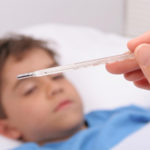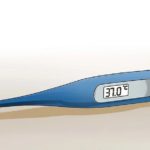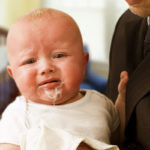Diarrhea is a leading cause of death in children, according to numerous studies. Globally, 3-5 million children die from diarrhea each year. Diarrhea is characterized by three or more loose stools per day. It causes malnutrition, infection, and loss of electrolytes, which can lead to death. The following article provides information on diarrhea in infants, which parents can refer to for their child’s protection.
1 Causes of Diarrhea in Infants
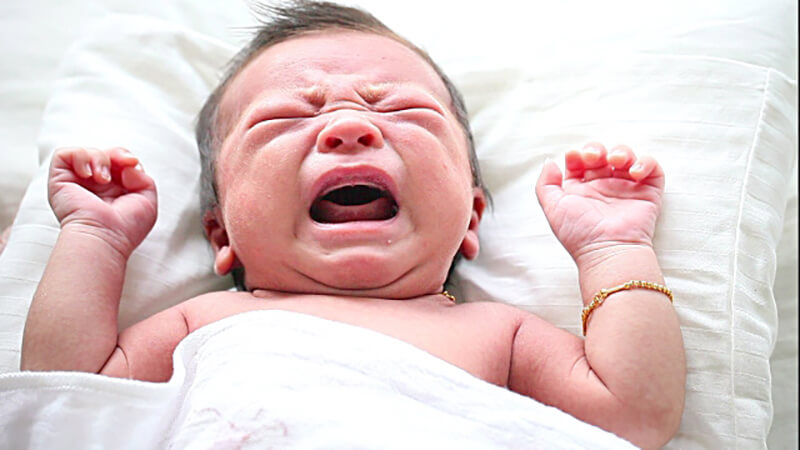 There are several causes of diarrhea in infants
There are several causes of diarrhea in infants
Diarrhea in infants can be caused by various factors, but the following are the main reasons:
Viral Infections: Viruses are the most common cause of diarrhea in infants. Common types include rotavirus, bacterial infections such as salmonella, and, less frequently, the parasite giardia.
Food Poisoning: Due to their underdeveloped and immature digestive systems, infants can only absorb and digest certain types of food. However, if parents are not careful, they may feed their babies food that is difficult to digest or past its expiration date, leading to diarrhea.
Other Causes: These include irritable bowel syndrome and food allergies, among others.
2 Signs of Diarrhea in Infants
Dehydration
The symptoms of dehydration vary depending on its severity:
-
Mild Dehydration: The baby’s eyes appear dry, and they produce little to no tears when crying.
-
Moderate Dehydration: The eyes appear sunken. The infant may become listless or lethargic, and their skin loses elasticity or becomes dry.
-
Severe Dehydration: This is the most dangerous stage, marked by a sunken fontanelle (the soft spot on the top of the baby’s head). The infant may also stop urinating (for 6 hours or more) and experience a loss of skin elasticity. Additionally, they may become very lethargic or even comatose.

Fatigue and Loss of Appetite
Infants with diarrhea often experience fatigue, loss of appetite, and lethargy. They may have multiple bowel movements per day, with loose, yellow, or green stools that may contain mucus, blood, or undigested food.
Vomiting and Fever
In the initial stages, infants may vomit frequently and have a mild fever, although they may not have a fever at all. In the later stages, they may experience profuse diarrhea, with up to 10 liters of loose stools per day, along with continuous vomiting and a high fever.
Reference: 5 simple and effective home remedies for infant diarrhea
3 What to Do When Your Infant Has Diarrhea
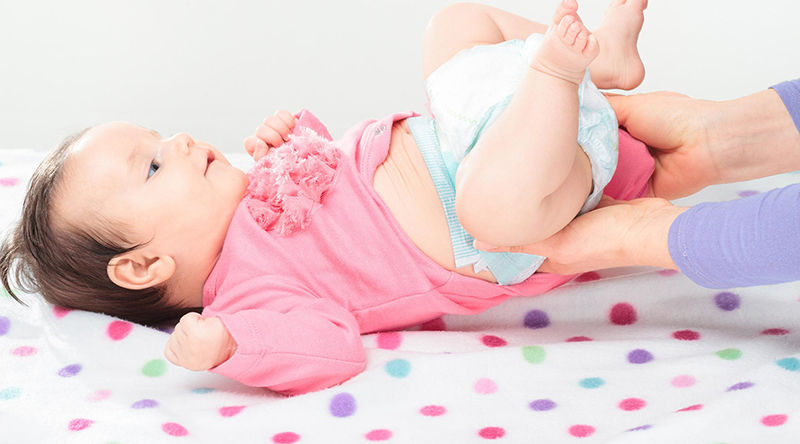
Rehydrate and Replenish Electrolytes
Parents can use oral rehydration solutions such as:
-
Oresol: Mix with water according to the instructions and give it to the infant to drink.
-
Sugar-Salt Solution: Mix 1 teaspoon of salt and 8 teaspoons of sugar with 1 liter of boiled water.
-
Rice Water: Mix 1 teaspoon of salt and a handful of rice with 1 liter of boiled water.
-
Coconut Water: Mix 1 teaspoon of salt with 1 liter of coconut water.
Modify the Diet
-
Continue breastfeeding if the infant is being breastfed.
-
After rehydration, offer the infant the same diet as before the diarrhea, but limit vegetables, sugary drinks, and orange juice.
-
Foods should be well-cooked, pureed, and given in small, frequent meals throughout the day.
Medicate
If the infant has a fever, bring it down. In some cases, antibiotics may be necessary, but only under a doctor’s prescription.
Seek Medical Attention
If the infant’s diarrhea persists for more than three days, shows signs of dysentery, or is accompanied by frequent vomiting and a continuous high fever above 38.5°C, take them to a healthcare facility immediately.
Untreated diarrhea can lead to serious complications. Check out 20 simple and effective home remedies for infant diarrhea.
4 How to Prevent Diarrhea in Infants
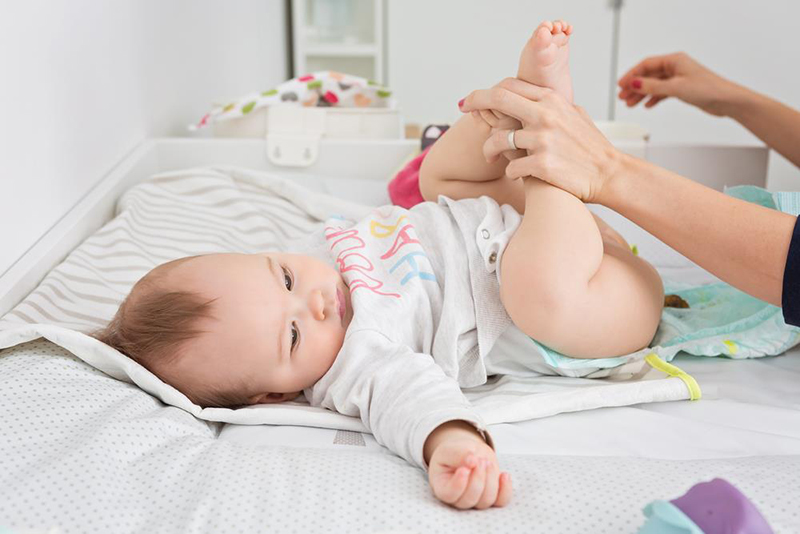
For infants, rotavirus vaccination is essential to prevent rotavirus infection.
Breastfeed for up to 18-24 months and introduce complementary foods from 4-5 months of age.
Use clean water for daily activities. Practice handwashing before eating and after using the toilet
Ensure the infant consumes only well-cooked food and boiled water, avoiding raw vegetables and untreated water.
Use toilets and safely dispose of infant feces.
Note: For families with a diarrhea patient, disinfect the toilet with lime powder or Chloramin B after each use. Do not dispose of wastewater, laundry water, or the patient’s belongings in wells, ponds, rivers, or ditches, and do not litter.
Diarrhea is a common and prevalent condition in infants, but if not prevented and managed properly, it can be dangerous. Hopefully, this article has provided you with valuable knowledge about diarrhea in infants. Please refer to it in emergencies and stay informed!
Mothers Should Not Neglect Children Who Are Vomiting Milk: Causes and Solutions
The Risk of Underestimating Getting Caught in the Rain
No matter the weather, getting caught in the rain can be an unwelcome occurrence. While one may think that it’s no big deal, it’s important to take measures to get yourself dry and warm after such an experience. Don’t underestimate the effects of the rain – it can be more damaging than one may think.
























